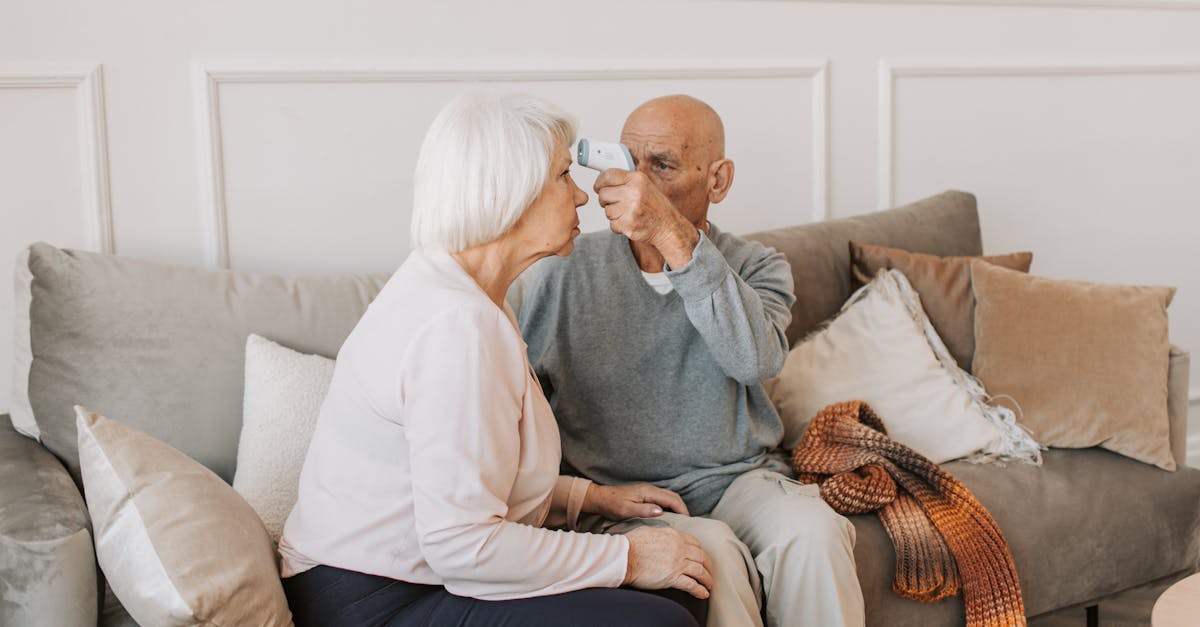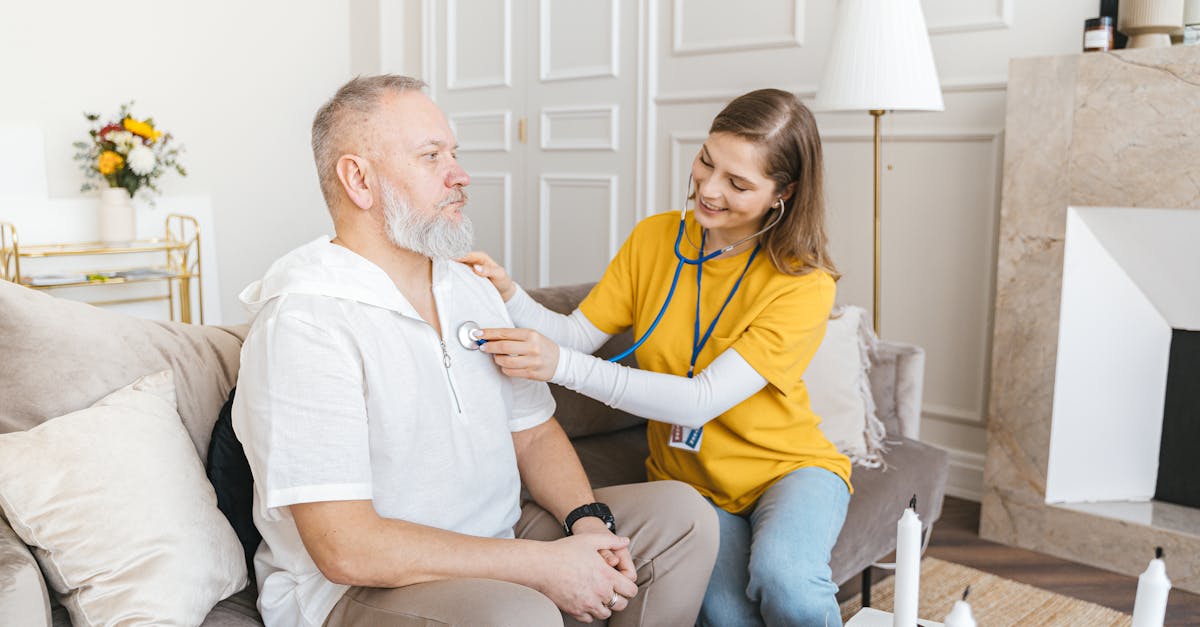Innovative Home Health Care Hacks
Introduction
In the evolving landscape of health care, maintaining well-being from the comfort of one’s home is becoming increasingly desirable. As medical advancements intersect with technology, home health care innovations offer convenient and efficient solutions. These hacks not only support patients but also alleviate burdens on caregivers, allowing them more time and energy for their loved ones. Many of these creative solutions are accessible, cost-effective, and easily integrated into everyday life. From modern devices to digital tools, the options are empowering for people of all ages. This article explores some innovative approaches to home health care, ensuring you stay informed and inspired.
Advertisement
Simplifying Medication Management
Managing medications can be one of the most challenging aspects of home health care. Fortunately, technology provides tools to overcome this challenge with ease. Smart pill dispensers ensure timely medication intake by alerting patients when it's time for their dose, keeping track of their regimen. Mobile apps, like Medisafe, remind users of their medication schedules, offering a digital companion for accountability and support. Blister packaging is another simple yet effective solution offered by pharmacies, separating medication doses into well-marked compartments, clarifying when and what to take each day. Some smart dispensers even synchronize with apps, offering reports for health practitioners and family members. Together, these hacks reduce error and empower patients, promoting better health outcomes.
Advertisement
Wearable Health Technology
Wearable devices have revolutionized home health care by bringing real-time health monitoring to the wrist. Fitness trackers like Fitbit and Apple Watch not only count steps but also monitor heart rate, sleep patterns, and even oxygen saturation. Advanced wearables guide users through breathing exercises to manage stress and can notify loved ones in case of an emergency. Newer devices feature electrocardiograms (EKG), alerting to potential heart irregularities. These devices, combined with relevant health apps, can compile data that patients can share with healthcare providers for ongoing management. Wearable technology encourages daily health engagement, thus facilitating proactive and informed personal health care.
Advertisement
Telehealth and Virtual Consultations
Convenience and accessibility marked by telehealth services have become indispensable tools in home health care. These virtual consultations save time, reduce exposure risks, and grant immediate expert advice. Whether through video calls or secure messaging platforms, patients can discuss disturbances or seek second opinions from medical professionals at ease. Many platforms offer immediate access to various specialists, such as dermatologists, dieticians, or mental health professionals. Beyond consultations, telehealth platforms often integrate features such as virtual prescriptions or home testing kits, offering a comprehensive suite of services. Telehealth plays an instrumental role in reducing barriers to quality care, bridging the gap between patients and providers.
Advertisement
Smart Home Technologies
Creating a conducive environment for health improvement, smart home technologies can provide functional support, ensuring greater comfort and security for patients. Devices like Amazon Echo or Google Home enable users to seek reminders, control lighting, and call for help merely through voice commands. Smart thermostats and lighting systems allow for optimized conditions tailored to patient needs, enhancing rest and recovery at home. Surveillance cameras and doorbell cameras provide peace of mind for caregivers and family members concerned about patient safety. Integrating these tools creates a controlled and supportive environment that prioritizes patient care and safety, ultimately boosting quality of life.
Advertisement
Nutrition and Meal Assistance
Healthy eating is a cornerstone of comprehensive health care. Innovative meal preparation tools and services offer vital nutritional support. Meal delivery services, such as HelloFresh or Blue Apron, bring nutritious ingredients with easy-to-follow recipes to doorsteps, encouraging healthy cooking. Apps like MyFitnessPal allow users to track calories and nutrition intake, while features like barcode scanners offer insights into daily nutrition. Smart kitchen devices offer assistance, from air fryers to smart refrigerators that keep track of expiry dates. Digital scales provide precise measurements for food portions, ensuring a balanced intake tailored to dietary needs. These innovations in meal assistance simplify healthy living, making it attainable and enjoyable.
Advertisement
Mental Health and Wellness
Enhancing mental health is pivotal in improving overall quality of life, and there are several digital tools to assist with this at home. Applications like Headspace and Calm guide users through meditation, helping reduce stress and anxiety. Virtual therapy platforms, like BetterHelp, connect users with certified therapists, providing essential support without leaving the house. Online communities and forums offer support groups where individuals share experiences and advice. Smart speakers can also be programmed to provide daily positivity tips or music therapy sessions. These mental health hacks foster a supportive environment that prioritizes emotional well-being, ensuring holistic health care.
Advertisement
Exercise and Physical Activity
With numerous innovations, ensuring regular physical activity has become more manageable and enjoyable at home. Virtual personal training platforms, like Peloton, offer immersive workout sessions ranging from cycling to yoga, encouraging an active lifestyle. Fitness streaming services provide on-demand sessions tailored to various needs and energy levels. Technologies like VR and AR create engaging environments that make exercises interactive. Resistance bands, smart dumbbells, and portable gym kits offer practical, space-efficient options for at-home workouts. These tools help individuals build consistency in physical activity, crucial for a balanced health care approach.
Advertisement
Customized Health Alerts and Monitoring
Smart home and wearable technologies create a net of real-time health monitoring that can provide timely, critical alerts. Customized alert systems indicate changes in patient vitals, such as abnormal blood pressure or heart rate, notifying both the patient and designated caregivers. Remote monitoring devices, often connected through the Internet of Things (IoT), allow for seamless data transfer to health practitioners. Smart scales and glucometers offer readouts, keeping progress in check. Emergency alert pendants or wristbands, seemingly ordinary accessories, become lifelines by notifying emergency services at a button press. These advancements maintain vigilance over health status, enabling swift assistance when needed.
Advertisement
Summing Up the Benefits of Home Health Care Innovations
Innovative home health care hacks represent a paradigm shift toward integrated, proactive health care management. These solutions amalgamate convenience with cutting-edge technology, effectively improving quality of life for patients and caregivers alike. Through modern apps, smart devices, and digital tools, individuals can seamlessly manage their health needs with efficiency and independence. The broad adoption of these innovations not only extends health care accessibility but also ensures personalized care delivery. As these tools continue to evolve, home health care becomes a practical and viable solution, paving the way for a healthier future.
Advertisement




